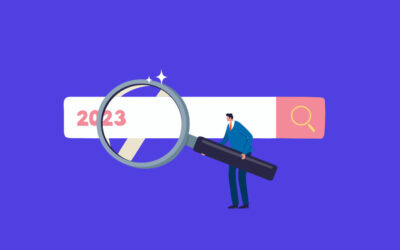Search engine optimisation (SEO) can be a pretty frustrating business because you have to wait so long to see concrete results.
You analyse your website’s search engine performance, devise a strategy that you believe will work based on available information, make a change… and wait.
Then, after an interval there’s no way of predicting, Google might decide to present your site higher up the search rankings.
Or lower.
It could be weeks before you know if your strategy is working and this can feel like trying to communicate with Earth from Jupiter.
In an emergency, when everything else is moving so fast, that frustration can feel all the more intense. You’ve launched your brilliant new crisis page – why isn’t it ranking?
It is possible to rank immediately with brand new content but getting into a position where that is likely to happen requires months, if not years, of careful groundwork.
If you want to make a strong showing in the Google search engine results page (SERP) when the next Making Tax Digital emerges, or (let’s hope note) the next COVID-19, start building an SEO strategy for your accountancy firm today.
Search rankings are complex
There are a few reasons it can take so long to see results.
First, it’s because Google’s hard-working algorithm (actually a whole suite of algorithms) has to index, analyse and prioritise billions of websites.
Those websites are dynamic, too – they change day by day, minute by minute.
That means Accountancy Website A might be above Accountancy Website B for a certain search term on Tuesday but their positions could well have switched by Wednesday, for a variety of reasons.
It could be because Website A has made a change which damages its ranking, or because Website B has made improvements, or even because the owners of Website C have decided to link to Website B boosting its authority.
And just to add to the complexity, those changes might well have been made three months ago, but have only just filtered through to the search rankings.
In certain competitive sectors – there are about 40,000 accountancy firms in the UK – this can turn into something of an arm’s race, with constant manoeuvring between businesses desperate to retain the top spot, or at least stay on the first page of results.
Google likes things slow
Though Google won’t admit it, there’s some speculation that the search giant has taken steps to deliberately obfuscate the connection between SEO activity and search rankings.
In the early days, SEO professionals got used to making changes and very quickly being able to observe the results. That incentivised constant tinkering as people in the same sectors jockeyed for pole position.
Nowadays, it seems as if Google deliberately delays changes to search rankings prompted by specific SEO measures. Sometimes it even seems to show an improvement in rankings for a day or two, then rescind it, then give it back.
The idea behind this, if it is a tactic on Google’s part as people suspect, would seem to be to discourage people from making changes to their website designed to game the system.
It wants to encourage people to focus instead on creating a pleasant user experience and providing useful, engaging content.
These days, though, SEO has evolved and the current breed of expert tends to be patient and analytical. They’ll make a few discrete changes and then wait for results before adjusting their strategy, or changing focus.
Again, this can seem frustrating if you’re the kind of person who likes to tackle a problem by throwing yourself into it at full tilt and just getting it done.
But the thing is, it works.
This tendency is why you’ll also struggle to get any SEO practitioner worth working with to make easy promises:
“When will I see results from this bit of SEO work?”
“Probably within a year, possibly within three months if we’re lucky.”
Google keeps telling us what it wants
The good news is, Google does give us a lot of concrete information to work from.
It has a comprehensive ‘SEO starter guide’ that breaks down in detail the steps it advises website owners to take if they want the best possible chance of the ranking they deserve.
The introduction explains their philosophy well:
You should build a website to benefit your users, and any optimization should be geared toward making the user experience better. One of those users is a search engine, which helps other users discover your content. Search Engine Optimization is about helping search engines understand and present content.
What catches people out sometimes is that Google periodically updates its standards and tests.
So even if you do invest time and energy in getting your website optimised and ranking, it can easily lose its high position if the algorithm is updated.
You will know when this has happened by the sound of millions of SEOs around the world banging their heads on their desks all at once.
Again, this is less of a risk if you focus on making your website pleasant to use and providing genuinely useful content rather than on trying to find workarounds and wheezes.
And, of course, it’s also a good idea to keep a close eye on Google’s own announcements and documentation. A decent SEO will watch Google obsessively and will also be plugged into all kinds of news sources and networks that give notice of upcoming changes.
Recently, though, Google took the unusual step of publishing details of changes it plans to make in 2021, giving us plenty of time to prepare. That kind of transparency is certainly welcome.
Laying the foundations
In summary, there is no guaranteed way to rank tomorrow for something you’ve decided is important today.
SEO isn’t a task or an event – it’s a process, that should be built around a strategy.
It’s about tightening every bolt and plugging every possible leak, from your Google my Business listing to instances of duplicate content across your site.
And it’s about producing a regular flow of good quality content on topics that matter to your clients and prospects.
All of that will, over time, send signals to Google that your website is a mine of expertise, that it has authority and can be trusted.
SEO software provider Ahrefs undertook research to work out the typical age of websites that rank for a whole range of keywords:
We took 2 million random keywords and pulled data on the Top10 ranking pages for each of them… the average Top10 ranking page is 2+ years old. And those that rank at position #1 are almost 3 years old (on average). In fact, only 22% of pages that currently rank in the Top10 were created within 1 year.
In other words, if you want a chance of ranking for keywords around what are likely to be hot topics in 2021, you need to set up pages or write blog posts that address them now. Even if there’s not much to say at this point.
For example, we’re advising clients who work with construction firms to make sure they’ve got mention of the VAT reverse charge on their websites, even though it doesn’t come into effect until next March.
All of this will pay off when the next big issue comes around the corner, and people want guidance and support. It will give your website the best shot of being right there, front and centre in the SERP.
Talk to us about SEO for accountants and get your firm’s website found by the right people.



